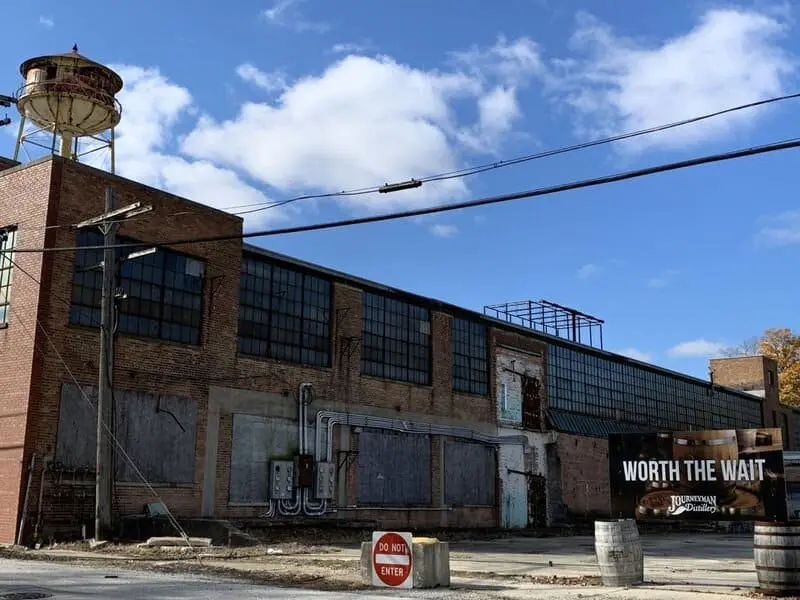Valparaiso Project Rezone Expected In April; Parking Details Released For Journeyman Distillery

The Journeyman Distillery project at the former site of a windshield wiper factory will be a step closer to coming to fruition after the Valparaiso City Council approves the necessary zoning change.
At a recent meeting, the council voted to move first reading of the rezone to April, but first got an overview of the parking and other details for the distillery and event venue slated for Campbell and Brown streets just southwest of downtown.
“This is a long awaited and very exciting project for the city,” said Beth Shrader, the city’s director of planning and transit, during a March 29 meeting.
The Plan Commission unanimously approved rezoning the former Anco property from Heavy Industrial District to Planned Unit Development, she said, adding a couple items are still being ironed out with the petitioner but officials are making great progress.
The Valparaiso Redevelopment Commission purchased the building out of receivership in April 2017 for $175,000. The commission paid $1.2 million, much of it reimbursed through a grant from the Regional Development Authority, for cleanup, including asbestos and mercury removal, officials have said. The property includes seven buildings that total 130,000 square feet, though two of those buildings will be torn down.

Journeyman closed on the property late last year, at which point it was transferred from the RDC. The project is being undertaken by Bill Welter, a Valparaiso native and founder of the distillery which opened its first location about 10 years ago in Three Oaks, Michigan.
Officials have said the COVID-19 pandemic pushed the project back about six months and the completion date is now scheduled for Oct. 30, 2023.
Attorney Todd Leeth, representing Journeyman, said during the meeting that the four-step rezoning process requires two steps this time because lots are not being sold to developers.
The developmental standards for the Planned Unit Development are being written specifically for that site and the “down zoning,” as Leeth termed it, is more typical for a downtown area.
“It’s very attractive for this part of town that really needs a shot in the arm,” he said, adding the development’s “signature architectural feature” will be a glass curtain wall.
Journeyman Distillery, he said, will be “a destination location,” particularly for events such as wedding receptions and parties. The crowd, he added, will not be there for an hour or two for a drink and a meal but for a few hours.
The event center will need 73% of the parking for the entire project. At the Michigan location, the hosts of two-thirds of the events provide shuttles or ride sharing that diminish the need for on-site parking, he said.
The event center would require 540 parking spots, Leeth said, but that figure will be adjusted downward. There also will be parking available north of the property, in the city’s commuter lot, and while property on the east side of Campbell isn’t slated for parking, it could be used as such if need be.
“This is the crown jewel of the acquisition,” Leeth said. “We’re not going to let parking hamper that when we have space across the street.”
He expects final design work to be complete later this summer, in conjunction with Ratio, the project’s architect, with a development plan to be approved by planning staff in the fall.
The RDC announced in May 2018 that Journeyman planned a second distillery and affiliated amenities for the site, part of a plan to redevelop the area into transit-oriented development. The site also is the hub for ChicaGO Dash commuter buses into downtown Chicago and transportation to the Dunes Park station for the South Shore train line.
In June 2019, the Indiana Economic Development Corp., led by Gov. Eric Holcomb, voted unanimously to grant the project $5 million in tax credits. Officials have said that the Indiana Recovery Tax Credit program, also known as “dino” because it’s used for “dinosaurs,” large, vacant and older industrial buildings, will provide the project 25 cents in tax credits for every $1 spent on redevelopment.
